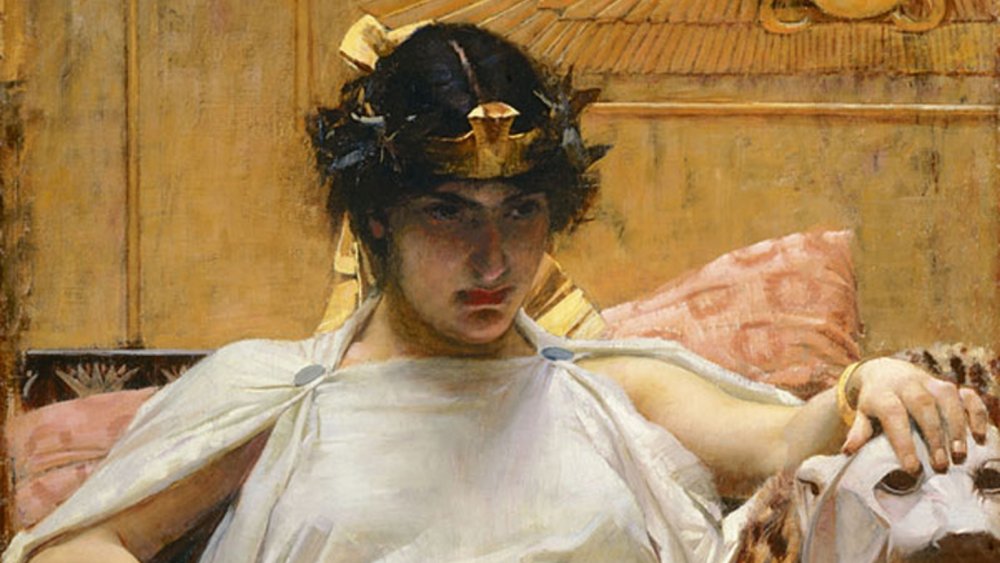The Insane Way Cleopatra Flaunted Her Wealth
Flaunt it if you got it, baby. This tagline could have easily belonged not only to the modern age, as a mantra of body positivity or exhibiting one's talents, but it could have been the catchphrase of the one of history's most famous rulers, Cleopatra of Egypt, who reigned from 69-30 BCE, per the BBC.
In today's world, it's easy to get annoyed at someone who, say, parks their Lotus on top of a parking line to ensure that other, mere mortal cars and their dusty denizens don't brush up against the fine gloss of such overstated opulence. At the same time, the lifestyles of the rich and famous are a source of constant fascination for us underclass-dwellers. Cleopatra, though, as an historical symbol of womanly power, fascinates above many others.
Not only was Cleopatra an astute politician and savvy diplomat, she was a nightly partier who would rove the streets of Alexandria after-hours with her boyfriend, the Roman general Mark Antony, and play pranks on commoners after getting trashed at their elite "feasts and wine-binges" club, "Inimitable Livers" (that's "live," as in: to be alive, not "liver," the organ that helps break down alcohol). The first time she was heading out to meet Marc Antony, in fact, she doused the sails of her ship in perfume from her personal perfume factory-slash-day spa so that the wind would announce her presence before she even arrived. This was the kind of money and power Cleopatra wielded.
Eat your heart out, modern-day billionaires
There was one instance, in particular, that demonstrated precisely how much wealth Cleopatra had, and the lengths she was willing to go through to make the statement that she would not be outdone. According to NBC News, Roman philosopher Pliny the Elder (23-79 CE) once recounted a story about a bet placed between Marc Antony and Cleopatra. It's important to note that there are no firsthand accounts of Cleopatra's goings on, and Pliny (and other historians like him) lived generations after Cleopatra's death. It seems, though, that this tale is actually scientifically possible, which would be apropos for the alchemy-and-chemistry-fascinated Cleopatra.
It seems Antony bet Cleopatra that she couldn't spend 10 million sesterces in one meal (about $10-20 million in the modern day). In response, rather than order an enormous banquet with tons of alcohol, entertainment, and such, Cleopatra simply ordered a small, simple meal. For the second course she ordered her servants only to bring her a cup of vinegar. Once she received it, she took off one of her pearl earrings, dropped it in the vinegar, watched it dissolved, then drank the entire cup. According to Pliny the pearl was "the largest in the whole of history," and a "remarkable and truly unique work of nature." It was, in fact, worth about 10 million sesterces. Apparently, nothing more complex than everyday white wine vinegar would have done the trick.

